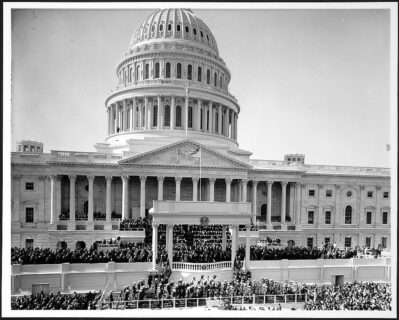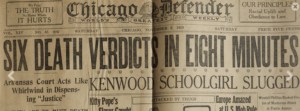
All the King’s Men at 75
In 1946, Robert Penn Warren (1905–1989) published All the King’s Men. The novel won the Pulitzer prize in 1947, has been twice made into a movie, and has been continuously in print for 75 years. It is generally regarded as the best novel about American politics ever written.
Penn Warren’s novel tells the story of Willie Stark, an earnest young man from a poor rural part of a southern state, who gets into politics to help the poor deprived people among whom he grew up. He discovers, however, that politics is a rough and nasty business, and that those directly involved don’t care about anything but themselves. They certainly don’t care about Willie, whom one faction uses in a governor’s race to help defeat another faction, all the time telling Willie they care about Willie’s ideas to help the people. Willie inadvertently learns he is being used. He turns on those using him, and rouses the people against them. At the next gubernatorial election, Willie wins. Shrewd in his calculations about the human soul, and thus about politics, and surpassingly ambitious and ruthless, he becomes a master of the nasty politics that once sought to take advantage of him.
Willie’s governing philosophy might best be understood as a reflection on Madison’s remark in Federalist 51 that “if men were angels, no government would be necessary.” Willie understands this to mean that because men aren’t angels, no government is possible. Instead of accepting constitutional constraints, Willie concludes he must dominate by manipulating the evil, selfish hearts of men in order to accomplish anything good. Madison thought ambition should counteract ambition to help preserve the constitutional order and the rule of law. Willie believes that towering ambition like his, combined with great political skill, can overwhelm the constitution and the rule of law, as long as it has the support of the people. And the people, of course, if misled by someone like Willie, can be made as self-interested as all those more directly involved in politics.
Willie’s story is a tragedy, but we only see the full scope of the tragedy because All the King’s Men is also the story of Jack Burden, Willie’s man Friday. Jack is from the ruling class of the state, from the kind of people who produced Madison and several generations of the Adams family. He works for Willie, however, because he senses the good Willie could do, but also because he is fascinated by the phenomenon of Willie. Jack is the narrator of the novel and offers a running commentary on its events that, despite Jack’s somewhat juvenile and affected cynicism, helps the reader understand, as the plot unfolds, that it shows the working of a moral order that Madison took for granted and Willie failed to respect, leading to his tragic end.
Seventy-five years after its publication, All the King’s Men remains a vital depiction of modern American politics. It is a heightened depiction of our politics, certainly, but for that reason All the King’s Men helps us understand the low version that engulfs and threatens us.



